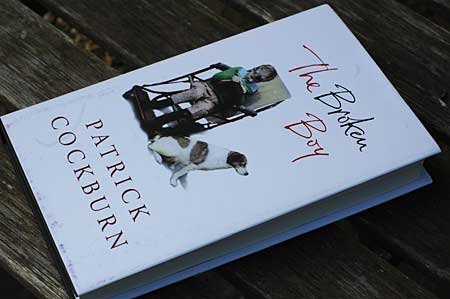Seeking to catch up on reading over the holidays, I took some back issues of the London Review of Books with me. I was particularly taken by “Looking for someone to kill”, one of Patrick Cockburn’s grimly realistic dispatches from Baghdad. I admire Cockburn’s journalism — he and Robert Fisk seem to me to be the best Western journalists writing about the Middle East. I’m also interested in him because I met him once or twice, and because his parents, Claud and Patricia, had been very nice to me when I was an undergraduate in Cork in the 1960s.
Later that day, we went to Donegal in search of more reading material for the kids, and wound up in the Four Masters bookshop on the Diamond, a small shop which has an interesting range of books for sale. It carries, of course, the usual beach-thrillers by Grisham etc., but also stuff (Seamus Heaney’s collected prose essays, Roy Foster’s mega-bio of WB Yeats, Andrew Marr’s lovely book on journalism etc.) which implies a discriminating and quirky owner.
Up on the top shelf I found Patrick’s autobiography, The Broken Boy.

The title comes from the fact that Patrick contracted polio at the age of six, and still bears the scars of it. (Which makes his ability to report from some of the most terrifying places on earth all the more remarkable.) So of course I reached up and took it down. The book fell open at a page showing this photograph.

I recognised it immediately as one of mine — I took it in the 1970s when visiting Claud and Patricia in their home in Youghal when I was back from Cambridge. It was lovely to see it used to such good effect, because it captures something of her remarkable spirit.
Claud was one of my heroes, and he and Patricia were immensely welcoming and tolerant of the hotheaded and opinionated would-be journalist who sought their company in the Sixties. I’ve never forgotten Claud’s advice to me when I told him I’d like to try journalism after Cambridge. “Make sure you libel someone important early in your career”, were his parting words. As a TV critic in the 1980s and 1990s, I did my best to live up to it (and enriched some lawyers as a result)!




